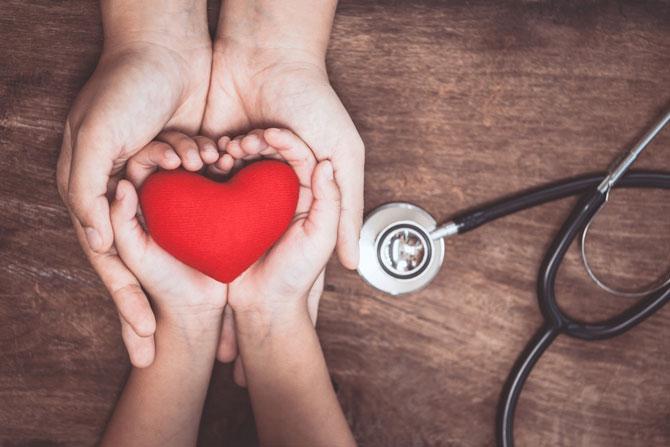Our expert give you five effective ways to deal with hypertension effectively


Representational Image
50 percent of people between the age of 60 to 69 years suffer from hypertension. This statistic only worsens as a person grows older reaching about 75 percent in those over the age of 70. In fact, the lifetime risk of developing hypertension is approximately 90 percent for men and women who were non-hypertensive at 55 or 65 years respectively – making hypertension a condition that requires our immediate attention.
While the condition affects one’s whole body, your heart is one organ that takes the worst beating. Dr Santosh Kumar Dora, Senior Cardiologist, Asian Heart Institute tells you how hypertension affects your heart and what you can do to deal with the condition.
How does hypertension affect your heart?
- It can result in hardening and thickening of the heart arteries, leading to their narrowing and causing the heart to receive less blood supply.
- It can also cause a heart attack. In fact, persons who present with an acute heart attack often have preexisting hypertension that evaded detection and treatment.
- It can cause abnormal thickening of heart muscle, the presence of which is a strong predictor of future cardiovascular death.
- High blood pressure puts more load on the heart and increases the amount of work that the heart has to do.
Eating right
Eating a heart-healthy diet is important for managing your blood pressure and reducing your risk of heart attack, heart disease, stroke and other diseases. Aim to eat a diet that's rich in fruits, vegetables, whole grain and high fibre foods, fat-free and low fat or 1 % dairy products etc. Avoid saturated and trans fats, excess salt and added sugar in your diet. DASH (Dietary approach to stop hypertension) diet pattern which contains low sodium, high potassium and rich in fruits and vegetables reduces by an average of 5.5 mm Hg for systolic and 3 mm Hg for diastolic blood pressure. For hypertensive patients, the reduction is 11.4 mm Hg for systolic and 5.5 for diastolic blood pressure. Low salt (< 1500 mg/day) further potentiates the reduction of blood pressure.
Maintain a healthy weight:
As your body weight increases, your blood pressure can rise. In fact, being overweight can make you more likely to develop high blood pressure than if you are at your desirable weight. You can reduce your risk of high blood pressure by losing weight. Even small amounts of weight loss can make a big difference in helping to prevent and treat high blood pressure. Studies conducted in obese hypertensive patients show a decrease in body weight by 1 kg resulted in a reduction of systolic and diastolic pressure by 1.2 and 1.0 mmHg, respectively.
Be physically active:
Physical activity not only helps control your blood pressure, it also helps you manage your weight, strengthen your heart and manage your stress level.
Even moderately intense physical activity, such as brisk walking, is beneficial when done regularly for a total of 30 minutes or longer at least 5 days a week. Hiking or stair-climbing, jogging, running, bicycling, swimming, fitness classes, team sports, dance classes are some of the activities which can help you stay fit. Studies say that regular dynamic physical exercise for at least 30 minutes daily for most days of a week leads to 5 to 9 mm Hg reduction of systolic blood pressure.
Say no to tobacco:
While smoking has not been conclusively proven to cause high blood pressure, each cigarette you smoke temporarily increases your blood pressure for many minutes after you finish. For your overall health and to reduce your risk of heart attack and stroke, avoid all forms of tobacco as well as secondhand smoke. A study has shown that smoking cessation leads to a reduction of systolic blood pressure by 3.5 mm Hg and diastolic blood pressure by 1.9 mm Hg.
Avoid drinking:
Drinking too much alcohol can raise blood pressure to unhealthy levels. Having more than three drinks in one sitting temporarily increases your blood pressure, but repeated binge drinking can lead to long-term increases. If you have high blood pressure, avoid alcohol or drink alcohol only in moderation.
Also read: World Hypertension Day: Why And How You Should Reduce Your Salt Intake
Catch up on all the latest Crime, National, International and Hatke news here. Also download the new mid-day Android and iOS apps to get latest updates
 Subscribe today by clicking the link and stay updated with the latest news!" Click here!
Subscribe today by clicking the link and stay updated with the latest news!" Click here!







